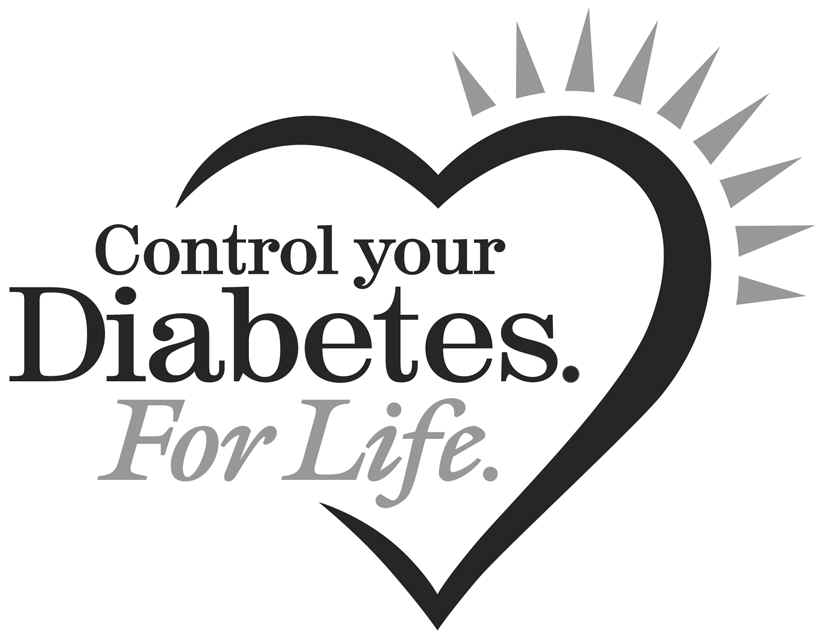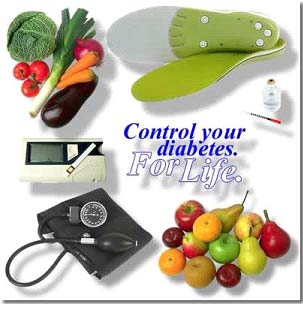
Treatment Options
Diabetes cannot be cured. It can, however, be controlled by keeping the level of sugar in the blood within its normal range.
The treatment and management of diabetes varies from patient to patient. Your doctor and diabetic care team will decide what form of treatment is best for you.
Patients with Type 1 diabetes do not produce insulin. Patients who lack insulin in their bodies must make certain adjustments in their diet and must take insulin. Insulin can only be given through injections. These injections may need to be given several times a day.
Patients with Type 2 diabetes may not need insulin. Diabetes in these patients is typically controlled with diet and exercise. Sometimes oral medications are also prescribed. In some cases of Type 2 diabetes, insulin may also be required.
The success of your treatment depends largely on you. When you learn AND practice how to control your sugar level, you will enjoy a healthier life.

Controlling Diabetes
You can control diabetes by:
- Eating right
- Exercising
- Monitoring your blood sugar level
- Taking prescribed medications
- Learning about diabetes
Your dietitian or diabetes educator will explain to you how you can plan your meals and answer any questions you may have.
The three goals of eating right are:
- Controlling your weight
- Keeping the level of blood sugar at normal levels, and
- Reducing fat in the body.
A healthy diet may include changing what you eat, how much you eat, and how often you eat. However, you may be surprised by how many healthy and tasty food options you have.
Exercise helps diabetic patients in many ways. It lowers glucose levels, helps weight-loss, and maintains a healthy heart and circulation. In addition, exercising helps relieve stress and strengthen muscles.
Your healthcare team will discuss your exercise plan with you. Always check with your doctor before starting a new exercise program.
Blood sugar testing is important in order to find out if your blood sugar level is where it should be. If your blood sugar is too low or too high, you may need a change in your diabetes medication, diet, or exercise plan. If a change is needed, your doctor or diabetic care team will give you instructions on what you should do.
Your blood sugar level is determined by testing a small drop of blood obtained from one of your fingers. This drop of blood is obtained by sticking your finger with a lancet.
Blood sugar is usually checked one to four times each day. This can be done at home. Most diabetics become very competent at checking their own blood sugar.
Your diabetes educator will teach you how to test your blood sugar correctly and will help you determine the times of day to do the tests. He or she will also teach you how to make changes in diabetes medication, diet, or exercise to help control your blood sugar. The educator will also review your blood sugar records and make any necessary changes in your therapy.
In cases of very high blood sugar levels that do not respond to diet and exercise plans, medications may be needed. You doctor will tell you if you need medications or insulin.
If insulin is needed, it can only be injected. Insulin is needed for all patients with Type 1 diabetes and some patients with Type 2 diabetes.
